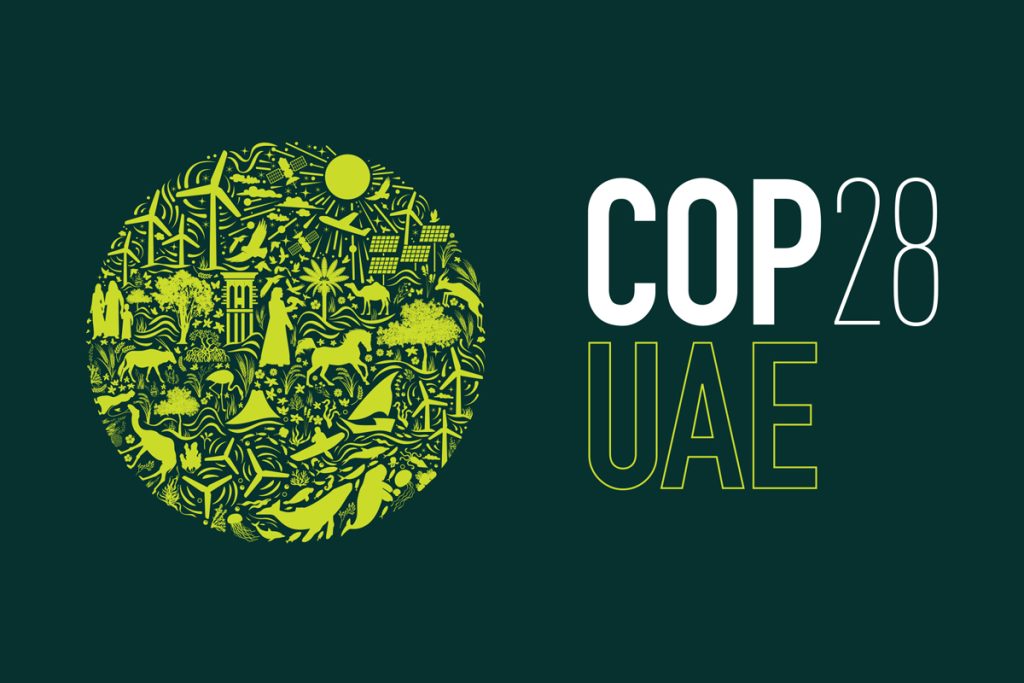
We are workers, not master builders; ministers, not messiahs.
(Bishop Ken Untener of Saginaw, drafted for a homily by Cardinal John Dearden in November 1979)
How I wish I had the power to change the world. To be like a marvel superhero that swoops down in a time of peril to save the day. In a world facing a climate emergency, as COP28 unfolds in the UAE, I wish that, sometimes, I had the power to push through the changes so clearly needed on the international stage. But, of course, I don’t. And, as a very wise man reminded me recently1, no mere human should have the power to change the whole world – because we would most likely use that power to change it in a way that reflects our vision.
Power and its misuse have contributed significantly to the Climate Crisis. Pope Francis in his latest encyclical, Laudate Deum, laments the current worldly obsession ‘to increase human power beyond anything imaginable, before which nonhuman reality is a mere resource at its disposal’2. A growth in power, Pope Francis reminds us, does not always indicate progress for humanity, and our immense technological development has not been matched by a development in ‘human responsibility, values and conscience’. Pope Francis’ words serve to warn us of the dangers inherent in wanting to have great power in the world, and also reflect the perils of interpreting the call to have ‘dominion’ over the land, sea and every living creature that God bestows upon humankind in Genesis 1. ‘Dominion language’ can all too quickly be revealed as the language of capitalist growth at any cost or echo the intentions of the colonial empire builders of the past.
This hunger for power and domination does little to reflect the context within which that Divine responsibility towards creation bestowed upon us is given in Genesis 1. Just before this ‘dominion’ call is made, humankind is depicted as being created in the image of God – a communal, trinitarian God, where Father, Son and Holy Spirit live in, as McGrath describes it, ‘a community of being’3. This reminds us of our calling to live in a way that enables all to flourish in community. To be a community of promise and hope.
What can reflecting a ‘Community of Promise’ look like? I think it starts by recognising where our ability to effect change really lies and how best to use it. It starts by practicing humility. We cannot ‘save the world’ – we are the workers, not the master builder – but, nevertheless, each one of us has spheres of influence. Pope Francis talks frequently of an ‘integral ecology’ recognising how, in creation, everything and everyone is connected4. When I have grandiose desires to ‘save the world’ I place a higher status on myself than is warranted and I forget that I am created in community, I am part of a body of people. Each one of us lives and works in community with others. And in this community, we can make a difference.
As news continues to filter out from COP28, most of us know that we have no direct power over the proceedings. This can stop us from doing anything. But we do have the ability to influence and effect change in our own contexts and localities. However big or small they may be, we all have our spheres of influence. The changes we make in our everyday lives – maybe reducing our meat intake, using public transport more, talking about climate concerns more with people at home and in our social circles, going on a protest – may seem small, but the gift of the ‘small act’ is not to be underestimated. Think of the young teenager who skipped school one Friday in 2018 to protest outside the parliament buildings in her home country of Sweden…
Scripture is full of images that show us the promise that lies within the small offer. The mustard seed, the yeast, the lost coin, the mite, the five loaves and two fish. Small symbols, small gifts, small acts that can be easily dismissed or even not proffered because of their perceptively insignificant influence, yet, this is where hope can be readily found – in, as Miroslav Volf describes, those small acts of love that stretch into the future.
So, during this COP28, I’m going to try and spend less time bemoaning what I cannot control, less time feeling frustrated that if only they would listen to me, and more time recognising that I belong to a community, intricately connected, where flourishing and bountiful, meaningful change can happen. This is the Community of Promise which we are all created in the image of, and reflecting this Community of Promise in our words and actions today is a hopeful way to respond to COP28.
Rev Grace Thomas is the Cathedral Missioner at Manchester Cathedral, Diocesan Environment Officer for the Diocese of Manchester, an Associate Tutor at the Luther King Centre in Manchester and a doctoral candidate at the University of Chester.
- My lovely Father in Law, Rev’d David Thomas
- https://www.vatican.va/content/francesco/en/apost_exhortations/documents/20231004-laudate-deum.html#:~:text=Everything%20that%20exists%20ceases%20to,human%20mind%20and%20its%20capacities.&text=24.,power%20represents%20progress%20for%20humanity.
- A McGrath Christian Theology: An Introduction, 3rd ed. (London: Blackwell, 2001), p. 325.
- https://www.ncronline.org/blogs/faith-and-justice/integral-ecology-everything-connected
More blogs on religion and public life
- “Barnabas Thrive” led by Revd Dr Paul Monk, is awarded Kings Award for Voluntary Service
by Matthew Barber-Rowell - How could a Temple Tract have had even more traction?
by Simon Lee - Remembrance Day: Just Decision Making II
by Matthew Barber-Rowell - Trustees Week 4th Nov – 8th Nov 2024
by Matthew Barber-Rowell - Some ancient wisdom for modern day elections
by Ian Mayer
Discuss this